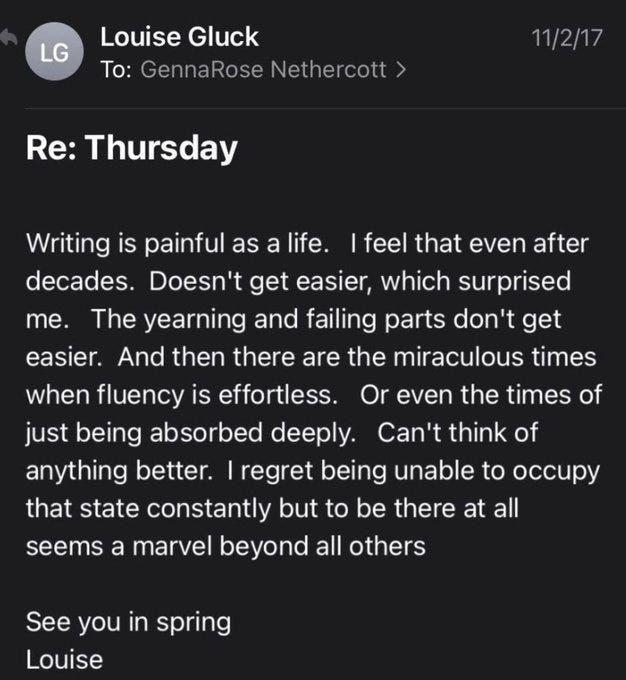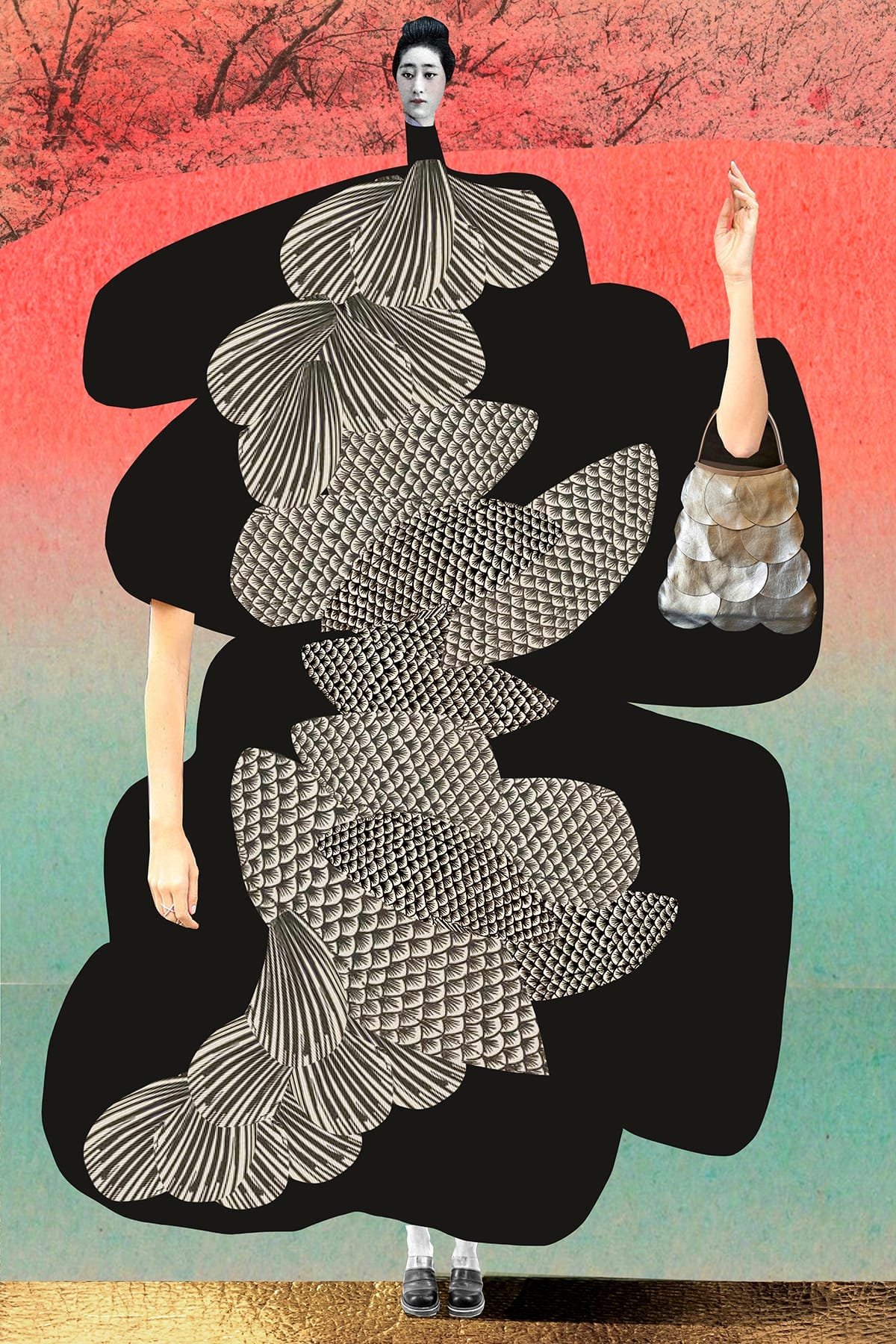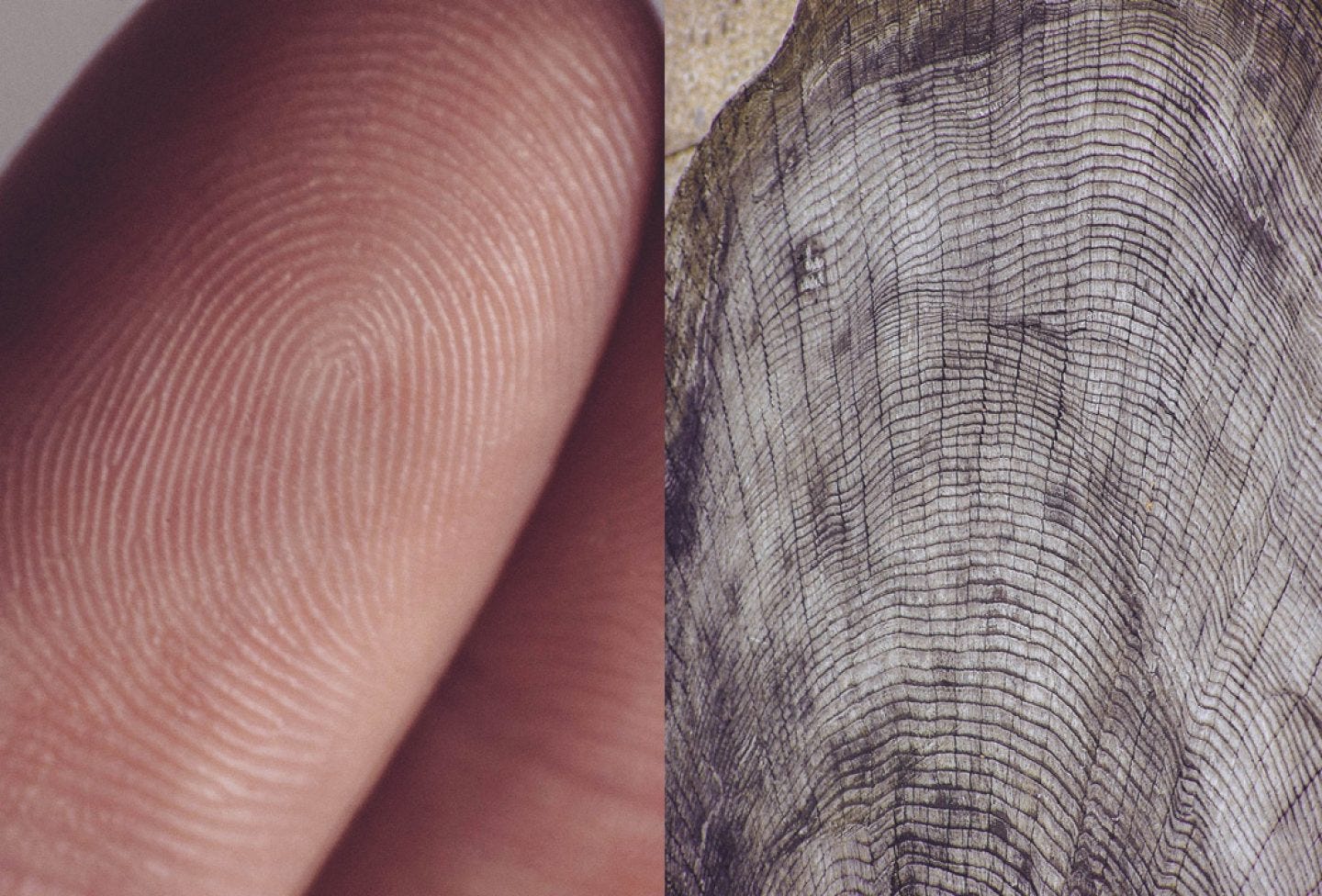Dearest,
I am still writing. Still circling the same obsessions, still trying to get closer to the thing that keeps slipping just out of reach. In the meantime, here are some interesting readings—artifacts from my vault, pieces that have kept my imagination alive. They are not necessarily new, but they have been, in some way, necessary. A gathering of thoughts and questions that have fed my thinking, my writing, my way of being in the world.
1 • What can we learn from billion-year-old stones? “In this era where we find ourselves locked in a perpetual calamitous stutter, teetering on the edge of catastrophe — why not try to imagine things from the unmoving, diamond-hard perspective of the mineral kingdom? It couldn’t hurt.”
2 • Thinking of collage as reclamation, transformation, defiance—I love these Imaginary Beings by Johanna Goodman. Constructing hybrid goddesses out of marble, magazine cutouts, and dream fragments, the effect is part mythmaking, part fashion editorial, part feminist battle cry. It’s as if she’s saying: You can disassemble us, but we’ll put ourselves back together taller, stranger, and impossibly magnificent.
3 • What even is a mother tongue? A language that cradled you first, or the one that holds you now? Thinking about language as inheritance, but also as self-definition—how we carry it, how it carries us, and how sometimes, we just wish we could set it down for a moment and breathe. (Thanks
for pointing me this way.)4 • The most wholesome, poetic thing: people writing love letters to trees. For example: “You are beautiful. Sometimes I sit or walk under you and feel happier. I love the way the light looks through your leaves and how your branches come down so low and wide it is almost as if you are trying to hug me. It is nice to have you so close, I should try to visit more often.”
5 • I love these diptych photographs by Agnieszka Lepka. She capture landscapes that feel alive, as if the trees, the water, the sky were not simply being observed but were actively responding to her lens. Juxtaposed against the body they became poems. Her photography reminds me that looking—truly looking—is an act of reverence.
6 • Proof that justice sometimes looks like an elderly woman cheerfully derailing a scammer’s entire afternoon. AI, meet delightful chaos.
7 • Ah, the semicolon. Elegant yet unnecessary—but also pretentious yet earnest?
8 • Jericho Brown speaks about form as both freedom and constraint, about the intimacy of poetry, and the way it demands that we tell the truth. A lovely conversation about writing, but also about life, and how language saves and betrays us in equal measure.
9 • Evolution is doing its weird and wondrous work. Wolves in the Chernobyl Exclusion Zone, exposed to extreme radiation, appear to be developing a resistance to cancer. Nature, in its quiet, terrifying resilience, finds a way.
10 • So you want to be an artist. Do you have to start a TikTok? “Under the tyranny of algorithmic media distribution, artists, authors — anyone whose work concerns itself with what it means to be human — now have to be entrepreneurs, too.”
11 • An examination of Philip Seymour Hoffman’s performances—his ability to inhabit the ache of a character so wholly that you feel it in your own bones. It is about grief, about solitude, about how deeply we want to be seen—and how impossible that sometimes feels. A haunting meditation on artistry and absence.
12 • Thinking about this letter from Louise Glück to a student, reminding us that writing is both ache and awe, a cycle of reaching and retreating. To remain in it, even for fleeting moments of fluency, is a marvel beyond all others.

13 • A timely and necessary discussion on the realities of literary magazine publishing—NEA grant guideline revisions, submission fees, the economics of running a lit mag.
14 • In an era of mindless doomscrolling, here is a rabbit hole I’ll willingly fall into. WikiTok is introduced as a portal to curiosity, an infinite scroll of knowledge. One minute, you’re reading about the history of the ampersand, the next, you’re deep in an entry about bioluminescent fungi. The sheer poetry of unexpected discovery!
15 • On doing things alone, and not necessarily because you have your shit together.
16 • Oh, the messy, undignified act of putting words on the page no matter how resistant they may be. Here’s Henry Miller’s call to arms, or perhaps just a plea to sit down and do the damn work.
17 • What would happen if you let yourself sound like yourself? Returning to this meditation by Alexander Chee. So many gems to keep.
18 • What is the politics of aesthetics? Tajja Isen writes about the hidden racism of book cover design—the way a single image can flatten or distort an entire narrative. This piece unpacks how the publishing industry’s visual choices often erase nuance, reinforce stereotypes, or market books by authors of colour in ways that make them more palatable to white audiences. A necessary read for anyone thinking about how stories are packaged before they are even read.
19 • Translating the past is as much about revival as it is about reinvention. Emily Wilson and Madeline Miller discuss the delicate art of reinterpreting ancient texts—how a single word choice can alter a character, a legacy, an entire myth.
20 • This reflection on teaching Aracelis Girmay’s work speaks to poetry as a form of deep listening—how language can expand and soften, holding more than it seems capable of.
Celebrating & Amplifying
Sharing some works from friends lately that you should check out—poets, artists, thinkers, and makers whose work deserves more eyes, more ears, more hearts. If you’re looking for something new to read, listen to, or witness, start here:
My dearest Mandana Chaffa’s interview with Aria Aber is out now at The Brooklyn Rail.
I’m so proud of designer extraordinaire Myka Arnado for being one of the speakers at this year’s Graphika Manila!
The good people of HoliCOW, lead by poet and artist Kae Batiquin, won the Good Design Award Japan 2024 for their HATEKA Weaving Initiative and Documentation System—what tremendous effort to document the patterns and colourways of Philippine weavers. Kae has held my heart with so much tenderness and care and I am ridiculously honoured to call her my friend.
abeo chimeka-tisdale’s gem of a poem “& whoops how the bones confuse ache for wonder” is up at Frozen Sea’s Special Issue.
Ray of sunshine and purveyor of great music Rachelle Boyson’s poem “How to survive in earthquake country” is part of Issue Six of Frozen Sea.
Gbenga Adesina is teaching Artifacts of Grief. I hope you’ll sign up—reading poems and writing with Gbenga is such a gift. How utterly my life has changed after being in workshop with him.
Lesley Valdes’ debut collection, The Starlight Room, is a meditation on music, memory, and the moments that shape us. Taking its name from the rooftop ballroom at the Doral Hotel in Miami Beach, where her father’s band once played, the collection moves through intimate family histories, holds what is both tender and dark, and speaks on both joy and loss. Available now for pre-order.
I absolutely adore this new poem by the ever so lovely
: “i ask the sun too much” — out now in Issue 113 of Burningword Journal.Jackson D. Moorman reads “At Lake Merritt I’m wearing a hoodie with nothing under it” from Shō No. 6 (Winter 2024/25).
Also check out Shō Poetry Journal’s Black History Month playlist featuring readings by Jae Nichelle, Saida Agostini, Ellen June Wright, Corey Baron, Mckendy Fils-Aimé, Erica Dawson, and Elontra Hall. Shō is edited by
and Johnny Cordova.Jennifer Haines is one of the most amazing human beings I know, and she has three poems up on Magazine1.
nawa angel a.h. writes about kilig in Seventh Wave’s anthology on queer family.
Also check out Xu Li’s curation on endings.
Kenny Bradley won Brooklyn Poets’ February Yawp Poem of the Month for “Custodial Services” — I was lucky enough to witness him read it live at last January’s In Surreal Life session.
While we’re at it: April 2025 ISL is now open for applications! Also
wrote a zine chock-full of writing prompts. Go get it.Gabriela Bittencourt sits down in conversation with Chelsea C. Jackson: “My work was wild with the swamps and rivers I grew up surrounded by, and that permeation revealed how fiercely I missed this land, culture, and people. So, I decided to follow the crumbs my poems were leaving for me and come back. And it turns out I do fit into the vibrant communities, activist spaces, and charged arts/culture scene that is, and always has, been here.”
Tupelo Quarterly reviewed Todd Dillard’s Ragnarok at the Father-Daughter Dance and I cannot wait to get my hands on this book.
Hiwot Adilow is teaching a workshop: Between Language & Music: Black Acoustemologies.
I also very much admire We the Soil, a creative community by
that shares workshops and other creative opportunities.Enjoyed reading “Daiquiri, Up”—a new poem by dearest Maureen Langloss on Harvard Review.
ori rue wrote Garlic & Ginger—both an ode to the complexity of these ecological kin.
What a powerhouse—Ashna Ali and Divya Victor are the hosts of new poetry podcast The Source, where they ask poets Rajiv Mohabir, Zaina Alsous, Hala Alyan, Douglas Kearney, and José Olivarez to talk about the sources, craft choices, contexts, and human backstories of individual poems they’ve written and what they’ve come to mean now. The podcast will be available on Spotify in late February/ early March!
Ashna also has a book out—The Relativity of Living Well—and it will change your life. The cover is designed by Katia Engell whose collage art is out of this world.
Congratulations to Mary Beth Becker for being one of the 2025–2026 Mentor Series Fellows at The Loft.
There is still time to sign up for this free one-hour generative writing (poetry) workshop with Luisa A. Igloria.
Join Workshops4Gaza for an online poetry reading featuring Sarah Ghazal Ali, George Abraham, Naomi Shihab Nye, and Cindy Juyoung Ok.
May these find their way into your writing.
Yours,
T.








your writing is like falling into a rich conversation with a great friend, calming and beautiful. 💕
I have only just been able to go through all the gems in this round-up. Wonderful, as always. Thank you.